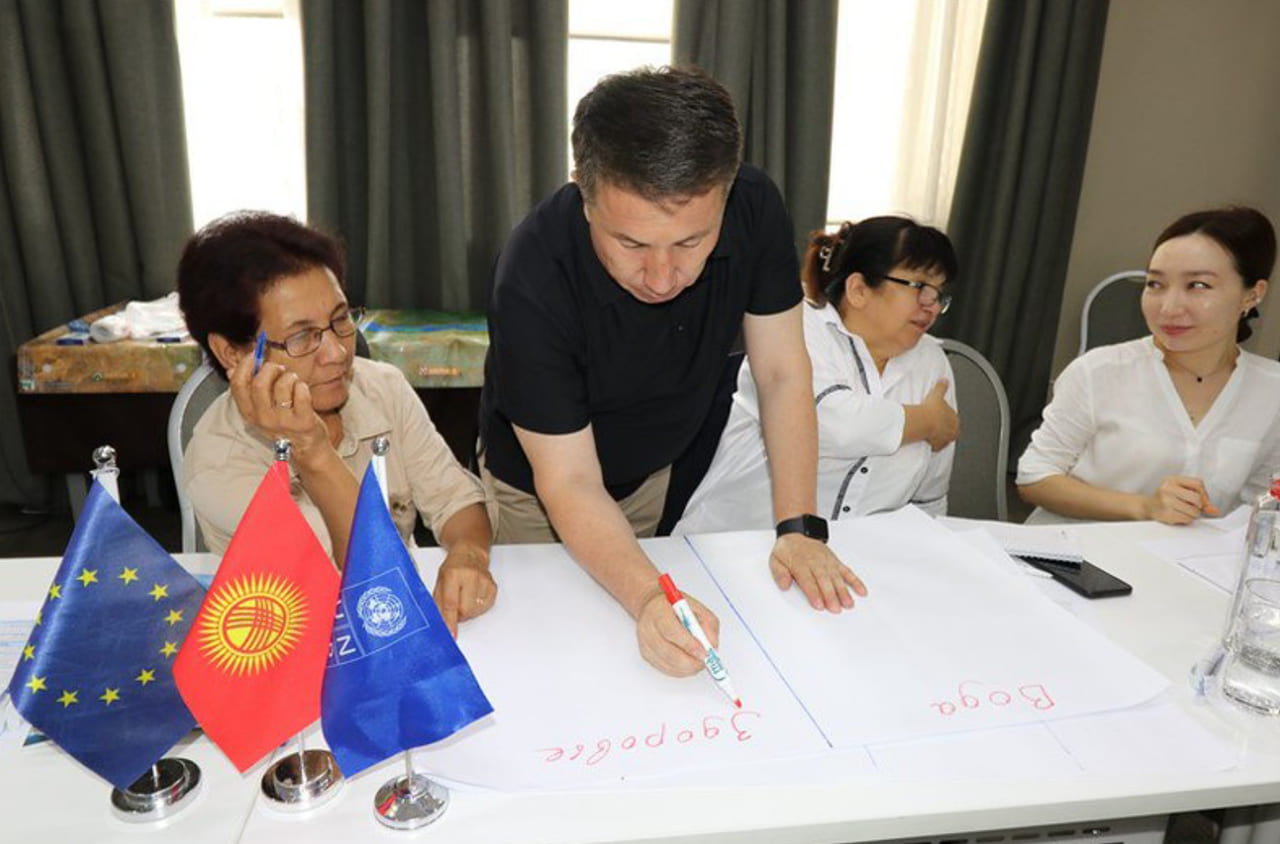The European Union (EU), the United Nations Development Programme (UNDP), and the Global Water Partnership of Kyrgyzstan recently held a workshop titled "Capacity Building on Climate Change and the Water-Energy-Food Security and Health Nexus (NEXUS)." Over 30 specialists and key stakeholders from various ministries, agencies, and organizations participated to enhance climate resilience across Kyrgyzstan.

The two-day training, held as part of the EU-funded regional project "Climate Change and Resilience in Central Asia," took place from June 29 to June 30 in Bishkek. Participants encompassed representatives from sectors critical to Kyrgyzstan's development, including water management, agriculture, energy, health, environmental protection, emergency management, education, NGOs, academia, and youth groups.
The workshop aimed to familiarize participants with the innovative NEXUS approach, which advocates for an integrated, cross-sectoral strategy to address climate challenges. Key sessions delved into the foundational concepts of the NEXUS approach, its objectives, and success stories from global applications.
Taalaibek Mukashovich Makeev, a NEXUS trainer, highlighted the significance of the event in contextualizing the interconnectedness of water resources with energy, food security, and public health in Kyrgyzstan. He emphasized the training's role in equipping stakeholders to identify and address systemic vulnerabilities within the NEXUS framework.

The NEXUS approach represents a paradigm shift from traditional sectoral strategies to holistic, coordinated approaches to socio-economic development. It provides a structured framework for dialogue and informed decision-making, crucial for sustainable resource management amidst climate uncertainties.
Abdybay Shakirbaevich Djailoobaev, Deputy Director of the Water Resources Service under the Ministry of Water Resources, Agriculture, and Processing Industry of the Kyrgyz Republic, underscored the approach's importance for regional cooperation in managing shared water resources.
The workshop concluded with expectations that participants would gain a comprehensive understanding of applying the NEXUS approach in Kyrgyzstan's context. This includes identifying vulnerabilities, understanding their origins and implications, and developing strategies for resilient development across sectors.
The EU-funded project aims to enhance climate resilience and foster sustainable development models in the transboundary Fergana Valley, spanning Kyrgyzstan, Tajikistan, and Uzbekistan. It seeks to increase awareness of climate risks among stakeholders, facilitate risk-informed decision-making, and support the implementation of practical measures to mitigate climate impacts.
Follow Daryo's official Instagram and Twitter pages to keep current on world news.
Comments (0)